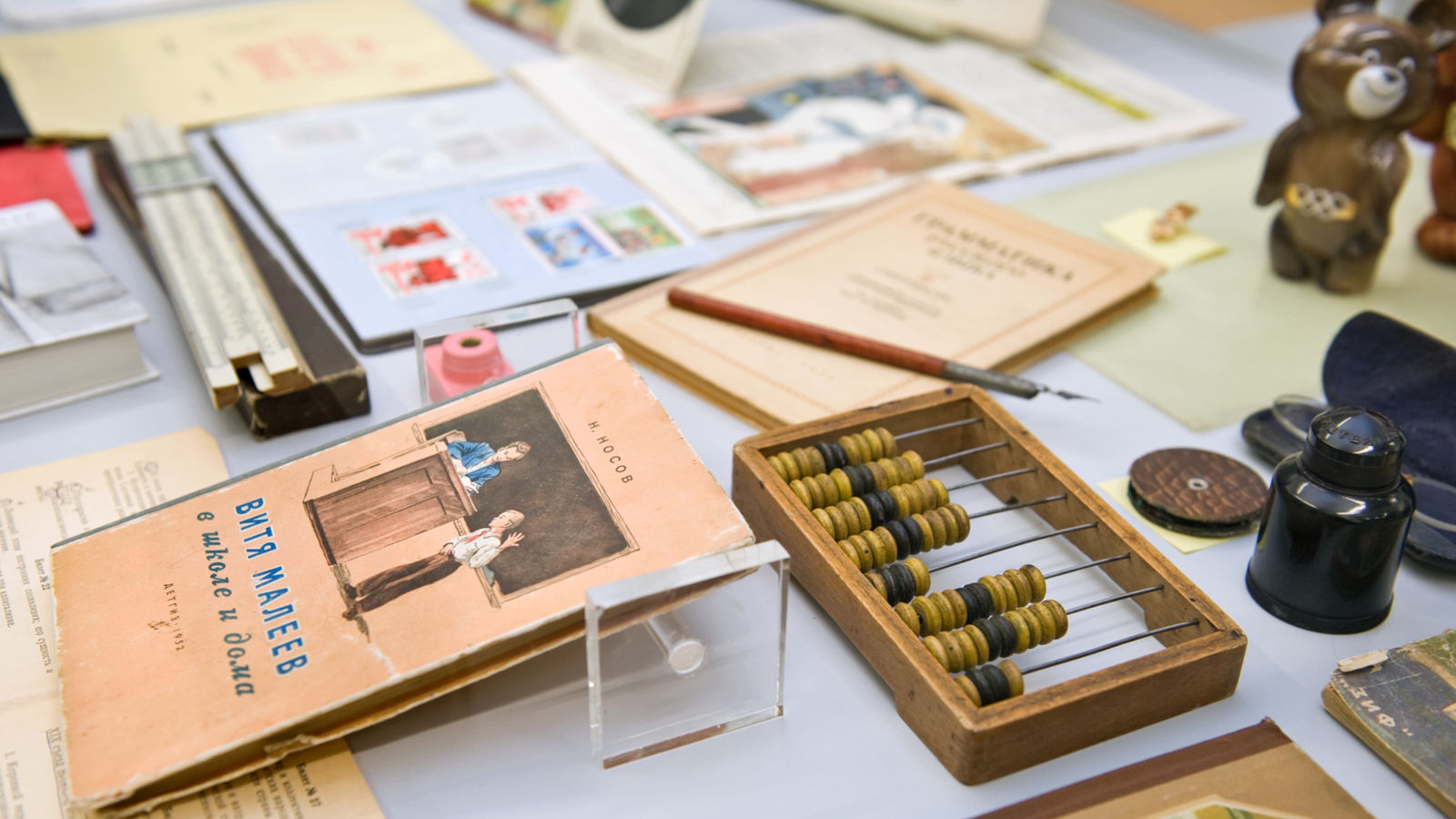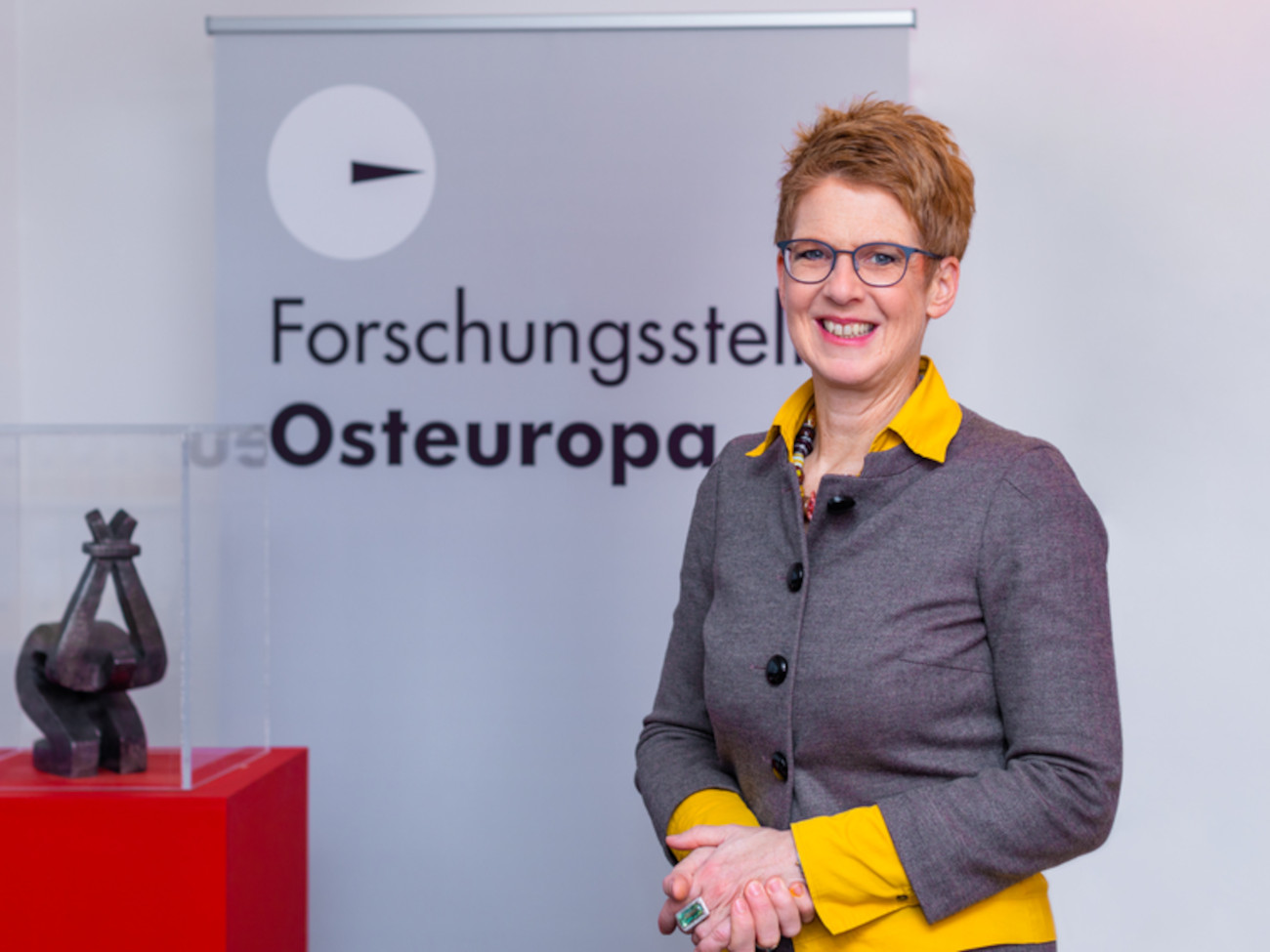
© Harald Rehling / Universität Bremen
Research Centre for East European Studies: More in Demand than Ever and Affected by the War
What the Russian war of aggression in Ukraine is doing to the institution at the University of Bremen.
Since the start of the Ukraine war, the media and politicians have been asking for their assessments on an almost daily basis. In classes, their expertise is in demand when it comes to Putin, Russia, and Ukraine: the Research Centre for East European Studies at the University of Bremen – FSO for short. At the same time, the horrific events are massively restricting the work of the staff. How their research in Russia, for example, can continue in the future is uncertain.
It was February 23, 2022 – one day before Russian President Vladimir Putin attacked Ukraine. That’s when a report appeared in the Weser Kurier newspaper with the head of the Research Centre for East European Studies, Professor Susanne Schattenberg. In it, the Eastern Europe expert referred, among other things, to an essay published by the Russian president last summer. It made clear what Putin plans to do over the next few years: annex the former Soviet territories. Uncompromisingly. A day later, Putin attacked Ukraine.
Susanne Schattenberg and her colleagues at FSO are proven experts when it comes to Eastern Europe. At the moment, you can see them on television, hear their assessments on the radio, and read articles with their expertise. At the same time, there is a kind of state of emergency in the research facility on Klagenfurter Straße on the university campus. All employees are trying to help their relatives, cooperation partners, and refugees from Ukraine. They are also trying to support their Russian partners. In the FSO itself, there are many employees from both countries who have been left speechless by the war. “Each and every one of us here is personally and professionally connected to Ukraine and Russia,” says Susanne Schattenberg, “we are experiencing dramatic times.” The mood is low at the institute. “In their thoughts, everyone here is with their relatives, colleagues, and friends in Ukraine and Russia. We are helping however we can.”

© Matej Meza / Universität Bremen
The FSO is currently appealing for donations and awarding Hans Koschnick scholarships for refugees at short notice and without bureaucracy. “We have already received a lot of requests here – especially from people from Russia who want to leave. We also know of students and journalists who have already been arrested,” states the head of FSO.
World’s Largest Samizdat Archive
The FSO was founded in 1982 at a similarly explosive time: the Cold War was raging in Europe when Wolfgang Eichwede, a scientist at the time, founded the research institution at the University of Bremen. In the first three years, the Volkswagen Foundation, along with the state of Bremen, provided support. Subsequently, the Conference of Ministers of Education and Cultural Affairs took over funding with the state. After the fall of the Berlin Wall, the FSO devoted itself to the transformation process of the former Eastern Bloc countries. Today, the FSO sees itself as a place where the Eastern Bloc and its societies with their specific culture are studied and current developments in the post-Soviet region are analyzed.
The research institution has an impressive archive. For example, there are more than 100,000 original pieces of writing, photos, samizdat artworks – thus the underground literature of the former Eastern Bloc countries. ” We are now the world’s largest samizdat archive,” states Susanne Schattenberg. In addition, there are 750 personal archives. Among them are authors such as the Russian writers Lev Kopelev and Yuri Trifonov. You can also find bizarre documents there, such as records of Leonid Brezhnev, on which he recorded his speeches.
“We have received requests from students and journalists from Russia who have already been arrested.” FSO Director Susanne Schattenberg
Research Uncertain in the Future
“At the moment, we cannot even imagine what this war means for our future research,” explains Susanne Schattenberg. Take Russia, for example: it is not yet clear how collaborations can continue in the future. “Trips there will not be possible for an unknown period of time.” Doctoral students who waited two years for their research stay because of corona and now wanted to go have to change their project completely. But the most important thing now is to give those in need of protection a safe haven. This is what the Research Centre for East European Studies at the University of Bremen has stood for since its foundation.
War in Ukraine: How You Can Help
The Research Centre for East European Studies at the University of Bremen would like to help refugee researchers from Ukraine, as well as colleagues in Russia who are in danger, to come to Bremen. To this end, they are awarding Hans Koschnick Scholarships at short notice and without bureaucracy.
We are asking for your help and donations to get the refugees to Bremen.
You can donate to our support association under the keyword: “geflüchtete WissenschaftlerInnen”.
IBAN: DE12 8306 5408 0004 8513 82
BIC: GENODEF1SLR
Deutsche Skatbank
We will gladly issue you a donation receipt. Please send a short email with your name and address to: fsov@uni-bremen.de. Thank you very much!
Website of the Research Centre for East European Studies
The University of Bremen is also supporting students and researchers affected by the war in Ukraine. Find out more here.